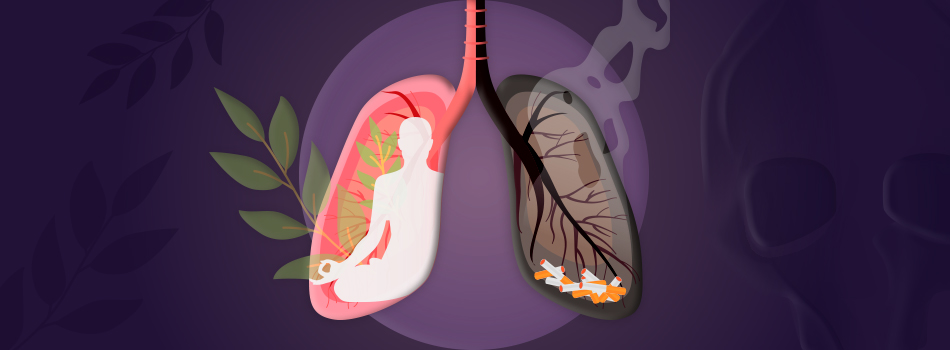
10 Ways to Stress-Proof Your Life
published : 10 September 2016
We know that the mind holds the power to make us sick. Illness often arises not only from physical causes, but also from our attitudes, fears, doubts, and emotional reactions. The way we meet stress, tension, worry, and anxiety shapes the condition of our body. Indeed, the mind influences not only the illnesses we may suffer, but also the length of our lives.
Yet, just as the mind can bring about disease and even death, it can also be the wellspring of healing, peace, and good health.
Dr. Vernon Coleman, through extensive research on the power of the mind, has shown that when we learn to control our emotions and reactions, the mind becomes a powerful ally to the body rather than its enemy. By cultivating a realistic and positive attitude, we can use the mind’s strength to make the body resilient and resistant to stress.
The following ten steps offer simple yet profound ways to cultivate good health and to make the body “stress-proof” by awakening the power of the mind.
1. Build Self-Confidence
When self-confidence is lacking, tension quietly takes root. Without belief in yourself, you may feel helpless in the face of others’ demands and expectations, leaving you vulnerable to stress-related illness.
To overcome this, learn to trust in your own strength. Try this simple exercise: imagine you are a copywriter preparing an advertisement. The product you are asked to sell is—you! Write down, one by one, all the good things you can say about yourself. Don’t hesitate to emphasize—or even slightly exaggerate—your qualities, just as advertisements often do.
Avoid revisiting your weaknesses; you already know them well. Instead, focus entirely on your strengths. Read your list again and again. With time, this practice will deepen your trust in yourself and nurture a strong, steady confidence.
2. Learn to Say “No”
Experience shows that those who always try to please others—constantly worrying about what people will think—often suffer the most from tension. In contrast, those who respect their own wishes and limits carry far less stress.
This does not mean being rude or unkind. It simply means becoming more aware of your own needs and expressing them clearly. Practice being assertive. When you truly do not wish to do something, say “no” politely but firmly. You will feel lighter, and your tension will ease.
Remember, people usually respect honesty. A forced or hesitant “yes” creates more discomfort—for both you and the other person. Learn, therefore, the gentle strength of saying “no.”
3. Set Goals in Life
To live fully, we need hopes, dreams, and goals—something to strive for and cherish. Without a sense of purpose, life soon feels empty. A meaningful goal gives us the strength to endure challenges and overcome difficulties.
One way to discover your purpose is to recall the dreams of your youth. Think of the visions that once inspired and stirred your heart. Now ask yourself: which of those dreams still awaken excitement within you today? You may find that many of them are still within reach—if only you choose to make the effort. Take one of these dreams and let it become your present goal. Allow it to guide you, uplift you, and fill your life with new energy.
4. Learn to Prioritize
Stress grows heavier when we fail to distinguish between the truly important and the trivial, or when we do not know which task deserves our attention first. Without clear priorities, the mind treats everything as equally urgent, and the weight soon becomes overwhelming.
Yet prioritizing is not difficult. Begin by making a list of the things that trouble you. Then ask yourself honestly: which of these truly matter? Which are merely distractions? Place your energy only where it counts. Let go of the rest.
To spend time on the unimportant is not only unwise—it robs you of peace. When you set clear priorities, you will find your stress naturally begins to dissolve.
5. Let Your Emotions Out
When you suppress everything inside, tension quietly builds up. Learn instead to express your emotions. If sadness rises and you feel like crying, then cry—cry deeply, cry freely.
Researchers have discovered that the chemical makeup of emotional tears is quite different from the tears caused by dust or irritation. Emotional tears wash away stress and bring healing. Crying is not a sign of weakness; it is a natural medicine for sorrow and anxiety.
So when your heart longs to cry, do not resist. Allow it to flow, and you will feel lighter within.
6. Express Anger in Healthy Ways
When anger is suppressed, it can harm you physically, mentally, socially, and even financially. Anger itself is not “bad”—it is a natural human emotion that arises in certain situations. The real danger comes when you bottle it up.
If you feel angry, first acknowledge it: say to yourself, “Yes, I am angry because of this.” Awareness prevents denial. Then, if you need a physical release, do it safely—kick a football with force, strike a cushion, or shout into the air when you are alone. These simple actions release the pent-up energy within.
The key is not to hurt others or yourself, but to allow the emotion to flow out in a healthy way. When expressed wisely, anger quickly loses its grip, and inner tension begins to dissolve.
7. Eliminate Monotony
Stress does not arise only from being too busy. Inactivity and monotony can also feed restlessness and anxiety. When life feels empty, the mind becomes unsettled.
If you sense boredom creeping in, engage in something meaningful. Develop a hobby, explore a creative interest, or take part in service work that benefits others. Such activities bring a sense of renewal and quiet pride.
Do not be afraid to take risks either. Try something new, even if failure is possible. Every new experience awakens the spirit and keeps life vibrant.
8. Laugh Several Times a Day
The mystery of laughter is profound. Science has yet to fully explain it, yet we know that laughter works wonders for the body and mind. It regulates breathing, improves blood circulation, lowers blood pressure, and stimulates the release of healing hormones.
So invite laughter into your life each day. Spend time with joyful people. Read something humorous. Watch comedies or cartoons. Share jokes, play games, and laugh freely with children.
Every burst of laughter is like sunlight—nourishing both body and soul.
9. Add Affection to Your Life
Love and affection are essential life forces. At any age, a warm and friendly relationship enriches the heart.
Even science affirms this: an American insurance study found that men whose wives kissed them goodbye each morning before work lived, on average, five years longer and had fewer accidents.
So never keep your love hidden. Express it kindly and openly. Smile when parting from loved ones. Hug your children often. Tell your family and friends that you care. Simple gestures of love become a powerful shield against stress.
10. Practice Meditation
Relaxation does not come from sitting in front of a television or scrolling through your phone. Even then, the mind keeps replaying the day’s worries. True relaxation requires conscious practice.
Find a quiet, comfortable place. Lie down on a carpet or firm bed, or simply sit with your back straight. Close your eyes. Let your arms and legs grow heavy and still. Breathe slowly and deeply, as if each breath is washing away the tension inside you.
Now, allow your imagination to carry you to a place of peace. See the wide blue sky, smell the fragrance of flowers, hear the song of birds and the rustling of leaves. Feel yourself dissolving into this stillness.
In such moments, the body and mind enter a deep state of calm. From here, positive suggestions and healing thoughts can take root, working gently to restore balance, strength, and joy.


















